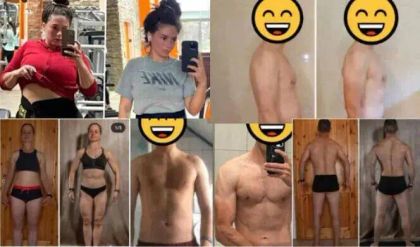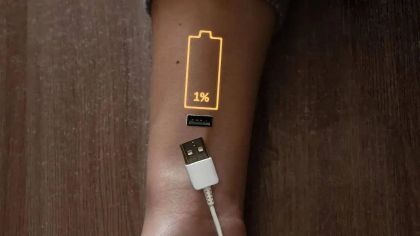We high-achievers hate the idea of slowing down.
Sounds like losing, right?
But here’s a twist:
Athletes, like Cristiano Ronaldo, have coaches just for sleep. They take recovery dead seriously and know it’s what allows them to beat their competition in the first place.
Meanwhile, in the work world, we pride ourselves on non-stop hustle. Rest is perceived as something for the weak. But does this actually lead to higher output?
Productivity author Cal Newport disagrees:
In his book “Deep Work”, he argues that cognitively demanding, focused work is only possible through proper recovery.
In reality, your mental, as well as physical performance, isn’t as much limited by your ability to push hard, but by your ability to recover.
Neglecting recovery doesn’t just make you more tired. It makes you prone to overeating, destroys your ability to focus, and makes you irritable.
In short, it costs you money and health.
To succeed in your career and with your fitness goals, you have to master the art of rest. Let's dive into how to create a protocol that allows you to do just that.
Multi-Dimensional Recovery
I used to be tired all the time. Even after 9 hours of sleep, I could barely drag myself out of bed. Not only did I miss my revenue goals, what truly hurt was my inability to create the quality of work I wanted to. It took me a long time to figure out what was really going on, because I made a common mistake:
When it comes to recovery, most people think about their body. But I realized it’s only one out of four pillars we need to address:
1) Sleep
Imagine I offered you a pill that improved your:
- Productivity
- Intelligence
- Resilience
- Happiness
- Creativity
But not just that - it would also help you:
- Lose weight
- Look more athletic
- Prevent heart disease, cancer, and Alzheimer’s
There are zero side effects and it’s free. Would you take it?
That “pill” is sleep. Without proper sleep, proper recovery is impossible. But, this isn’t just about length of sleep - quality matters just as much.
This is good news: Even if you’re in a phase in life where you can’t get a consistent 8 hours every night, you still have a lot of opportunity to improve it.
2) Physical Recovery
Physical recovery isn't just about taking a break. It includes activities like easy walks, using the sauna, and exercising. These activities not only refresh your body but also make your nervous system stronger. Exercise is especially good for beating stress, helping you feel better both physically and mentally.
3) Mental Recovery
Overstimulation is one of the biggest problems in the modern age. We see between 4000 and 10000 ads - every single day! Constant distraction isn’t just a killer for your productivity, it’s also highly exhausting.
Mental recovery is about giving your brain time to rest. Get away from screens! Watching TV is still stimulating to your brain - it needs time off. Best for mental recovery are mindful activities, like meditation or walking outside.
4) Emotional Recovery
Happy people are healthier, live longer, and are more productive. Recovering emotionally is simple: Engage in stuff you actually enjoy doing.
The key here is to differentiate real enjoyment from avoidance strategies:
Activities like:
- Watching TV
- Eating junk food
- Scrolling on social media
Might feel enjoyable, but are really just means to cope with difficult emotions and stress.
What are activities you would do, even if you weren’t stressed or exhausted at all?
This could be things like:
- Quality social time
- Going to the cinema
- Eating at a nice restaurant
Creating Your Own Protocol
Now it's time to create your recovery protocol. This is something you can use anytime you feel stressed, overwhelmed, or exhausted.
Here’s how to do it:
1) Write Down Your “Red Flags”
These are signs you need to recover. Here are some common examples:
- Irritability
- Back pain
- Overeating
- Inability to focus
- Engagement in activities you don’t really want to do
When those pile up, it’s a clear sign that you lack recovery.
2) Write Down the Triggers
What are your energy drainers? This could be something like:
- Lack of sleep
- Overstimulation
- Trying to multitask
- Procrastinating on important tasks
- One (or more) of the 6 burnout triggers
Those are things to watch out for.
3) Your Rejuvenators
For each pillar, select activities that can help you. This is highly personal, but here are some suggestions:
Optimizing sleep:
- Consistent bedtime
- Getting sunlight during daytime
- Having a night-time routine to wind down
Read the full article about the power of sleep and how to optimize it.
Body:
- Exercise
- Long walks
- Infrared sauna
Mind:
- Meditation
- Long walks
- Time in nature
Emotional:
- Watching a good movie
- Time with friends
- Nature
4) Your Recovery Sheet
Put together all of it on one page. Here’s what this can look like, taking myself as an example:
Red flags:
- Irritability
- Undereating
- Lack of focus
Triggers:
- Poor sleep
- Multitasking
- Social media
Rejuvenators:
- Nature
- Exercise
- Long walks
5) Do It BEFORE You Need It
The biggest problem with recovery: We tend to neglect it until all the red flags are screaming at you. Make it a commitment to engage in the rejuvenating activities before you actually need them! That way, you’ll be able to keep your momentum, without having to dig yourself out of a hole consistently.
Here’s a 14 Day Challenge for You
Take yourself one hour and fill the me-sheet. Then, take the 4 recovery pillars. Choose one activity for each. Schedule them within your week.
Example:
- Sleep: Read 10 pages to wind down
- Physical: Go on a long walk on Sunday
- Mental: 10 Minute meditation before going to sleep
- Emotional: Having a date night with your spouse once per week
If you're a driven entrepreneur or creator and looking to:
- Efficiently manage stress for better health and productivity
- Drop up to 20lbs in 90 days, without the diet-hamster-wheel
- Reach your dream physique in just 2 hours per week
Click HERE for a free 30-minute strategy call where I'll show you exactly how it works

